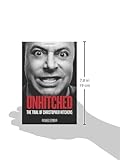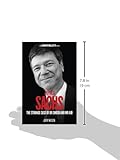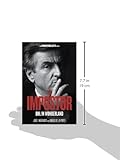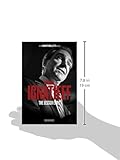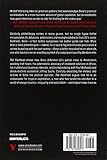It has become something of a parlor sport among the liberal snarkeratti to single out “public intellectuals” like Tom Friedman for mockery on social media sites. The New York Times columnist, and others of his ilk, are castigated as privileged buffoons and deluded chatterboxes—judgments not without some basis, to be sure. But rarely are figures like Friedman treated to anything but fleeting interrogation and disdain. What’s missing has been a serious consideration of how these media darlings use their influence, the ways in which that authority operates, and what the effects of their political interventions actually are.
Verso Books has started to fill that gap. The publisher’s new “Counterblasts” series—a rejuvenation of political publishing that adopts the pamphlet model of ideological attack—hammers away the mainstream guardians of the status quo. The series takes aim at a variety of notable characters populating the landscapes of political debate. In addition to Friedman, Bono, Michael Ignatieff, Bernard-Henri Levy, and Christopher Hitchens have each come in for scrutiny, and their progressive (and sometimes Leftist) bona fides torn apart. The books are sharp and sometimes funny, as each capably dissects the personalities of public figures who, far from using their power and popularity to challenge the neoliberal structures of the status quo, deploy their privilege for the purpose of defending them.
In The Imperial Messenger, Warscapes contributor Belen Fernandez takes aim at Tom Friedman. Methodically trudging through the columnist’s vast archive of reporting and opinion, and researching Friedman’s extensive connections to powerful sponsors, Fernandez reveals the remarkable story of how an intellectual fraud managed to establish himself as the most influential voice of the most influential opinions section in the world, then trenchantly takes him down in spectacular fashion. Derrick O’Keefe is no more forgiving in his look at Michael Ignatieff. In The Lesser Evil?, O’Keefe delves into the career of one of the world’s leading human rights crusaders, exposing a man whose progressive rhetoric obscures a will to power and success, and a North American liberalism decaying at its core. The Imposter: BHL in Wonderland is an ambitious takedown by French journalists Jade Lingaard and Xavier de la Porte of Europe’s premier intellectual, Bernard-Henri Lévy. In Lingaard and de la Porte’s telling, Lévy is little more than
a vacuous showman whose dedication to self-aggrandizement is outmatched only by his willingness to bully and terrorize those who question his authority.
This month, Verso releases the latest addition to this series—a wonderful, incisive look at the development economist Jeffrey Sachs. I recently spoke with Verso editor Audrea Lim to discuss the genesis and intent of the series, the latest installment examining the legacy of Sachs, and what the publishing house has in store for readers of the pamphlets moving forward.
Michael Busch: Can you begin by giving a little background about the idea animating the Counterblast series? Where does it come from? Why the “pamphlet” model? And why now?
Audrea Lim: The idea behind the Counterblast series is to target (and take down!) prominent liberal figures who profess to be progressive, while actually pushing neoliberal solutions. So far, we’ve covered a range of figures, including celebrity activists (Bono), pundits (Thomas Friedman), intellectuals (Christopher Hitchens) and politicians; and the one that’s hitting shelves right now targets Jeffrey Sachs, the former Shock Doctor-turned-development messiah, and mastermind of the multi-million-dollar, UNDP-backed Millennium Villages Project. Whatever their differences, all of these figures represent the failure of mainstream, liberal discourse to offer real solutions to political problems, and this is what the series is meant to highlight. The tradition of polemical pamphleteering has animated revolutions historically and globally, from the Seventeenth Century Levellers to the French, Russian, Chinese and Cuban revolutions of the Twentieth Century (not to mention the Arab Spring uprisings, Occupy and anti-austerity movements across Europe, more recently), and in the current political climate, where politicians, the media and public figures continue to uphold the status quo even when it’s clear that the system is broken, the Counterblast books are meant to destroy any illusions that humanitarian intervention or market-based solutions, for instance, might actually work this time around. It’s like Einstein’s definition of insanity: “doing the same thing over and over again and expecting different results.”
MB: I'm curious about how Verso is going about assembling the series. Has there been a method you've employed in choosing which public figures get taken down? In other words, why Sachs, Hitchens, Friedman, etc.? Are they, in your view, the most powerful voices in need of response, or is there another logic at work here?
AL: I would like to think that there is some method to the madness, even if we are far from being scientific! But generally speaking, we are choosing figures whose words or ideas hold undue sway over the liberal mainstream (like Friedman), who can rally huge amounts of capital or political support for questionable projects (like Bono or Sachs), or whose reputations as progressive campaigners have helped to legitimize the actions of Empire or Capital (like Sachs or Hitchens). In other words, yes, they are powerful voices who demand a response. However, the ultimate point of the series is not to burn them at the stake. I’m sure all of these people are very nice (if only Bono would return my calls!) and have good intentions, so we’re targeting them not because we think they’re villains, clowns or assholes, but because they represent the liberal and progressive faces of Capital.
MB: How has this series been received? Has there been any resistance to its publication? I’m wondering particularly if the Levy book has sparked any backlash since its translation into English, and whether you expect to hear from Sachs when that book hits the shelves. He’s known for not letting things go without comment.
AL: As you might expect, there has been some criticism about the individual books, from people looking to defend our targets! The BHL volume didn't draw the most backlash though; that would’ve been Richard Seymour’s volume on Christopher Hitchens, who used to be one of our own. That shouldn’t matter one way or the other though. The important thing there is how intellectual celebrity with a radical facade can be used to legitimize reactionary positions. As for Sachs—we’d welcome a public debate!
MB: Quickly on the Hitchens volume, I assume it was planned before his demise. Did his death change in any respect the approach to writing about his legacy? And is it a concern that he is no longer around to counter the counterblast?
AL: Yes, it was planned before his death, and it is definitely unfortunate that he’s no longer around to respond, but his legacy is strong enough and his positions continue to be prevalent enough in the mainstream that we still thought it a useful, and important, political intervention.
MB: Can you talk a bit about the forthcoming Sachs volume? It’s really excellent, but has a slightly different flavor than the earlier volumes...
AL: Gladly. Many people today will know Jeffrey Sachs as the bestselling author of The Price of Civilization and The End of Poverty, and his influence as a public intellectual is really significant: he’s a regular commentator on CNN, BBC and the NYT, and he accompanies Bono, Madonna & Angelina Jolie on high-profile journeys to Africa. The NYT has described him as “probably the most important economist in the world.” But what sets him apart from most of the other figures we’ve covered in the Counterblasts is that he’s also a practitioner of his own ideas, and built his reputation in this way.
This started in the 80s, when he pioneered a pretty brutal form of free market engineering that he called “shock therapy," in places like Poland, Bolivia and Russia. But these experiments were a total disaster and earned Sachs the nickname of “Shock Doctor.” He’s since left that phase of his career behind, and recast himself as a voice of the center-left and a development & anti-poverty expert. Today, he’s a Special Advisor to the UN Secretary-General, and his latest pet project is the multi-million dollar, UNDP-backed Millenium Villages Project in Sub-Saharan Africa, which directs Western aid toward a single, big injection of state investment in roads, schools and healthcare.
So it would seem that he has repented and taken a 180-turn in his career, but Japhy Wilson, the author of our Counterblast, doesn’t see it this way. In his view, Sachs’ career trajectory, from Shock Doctor to African Aid Guru, is not some 180-degree shift in orientation, through which Sachs has redeemed himself from his shock therapy disasters. Instead, these two identities are really just complementary sides of Sachs’ political project, in a Jekyll/Hyde sort of way. The idea is that Sachs’ career has really just been a series of trumped-up projects that aim to solve these major problems, like a lackluster economy or extreme poverty, in one fell swoop, but then wind up as massive, unequivocal failures. And so, through an assessment of Sachs’ entire life and career, Japhy Wilson argues that the new Jeffrey Sachs is really just the more “human” side of the neoliberal project that he was instrumental in shaping several decades back.
There’s also one other element of this Counterblast that’s unique. In the spring of 2013, Japhy actually visited the flagship site of the MVP (Ruhiira, Uganda) for a long research trip, where he managed to interview (on the D/L!) many residents, MVP field workers and some MVP administrators in the village. But this trip was cut short after just a few weeks when he was arrested by the Ugandan police for being in the village without the Project’s permission, and basically placed under house arrest for two days, after which he smuggled himself out of the country. The really fascinating research and findings about the MVP that came out of this investigation are detailed in the book, so I won’t go into them here, but suffice it to say for now that his on-the-ground research provides a really interesting & crucial counter-narrative to the MVP’s official account of the project, as well as other mainstream accounts like Nina Munk’s recent book on Sachs.
MB: Does Verso plan to set its sights on any targets beyond the shores of North America and Europe, or is it your intention to keep the focus on those operating and influential in the Global North?
AL: It’s definitely not out of the question! But the main reason, I think, that all of our subjects so far have been from North America or Western Europe is that we’ve been targeting the bastions of Western liberal progressivism. There’s no reason, however, that this shouldn’t change or evolve.
MB: And what lies ahead-- anyone we can expect to see profiled, or writers taking a cut at these handmaidens of Capital?
AL: We’ve been talking to a few writers about future installments for the series, which could be very exciting! All I’ll say for now is to keep us on the radar, sign up for our mailing list and check back on our website for news of forthcoming titles.
Audrea Lim is an editor at Verso Books and the editor of The Case for Sanctions Against Israel and The Verso Book of Dissent. She lives in Brooklyn.
Michael Busch is a Senior Editor at Warscapes Magazine. Follow him on Twitter at @michaelkbusch.

